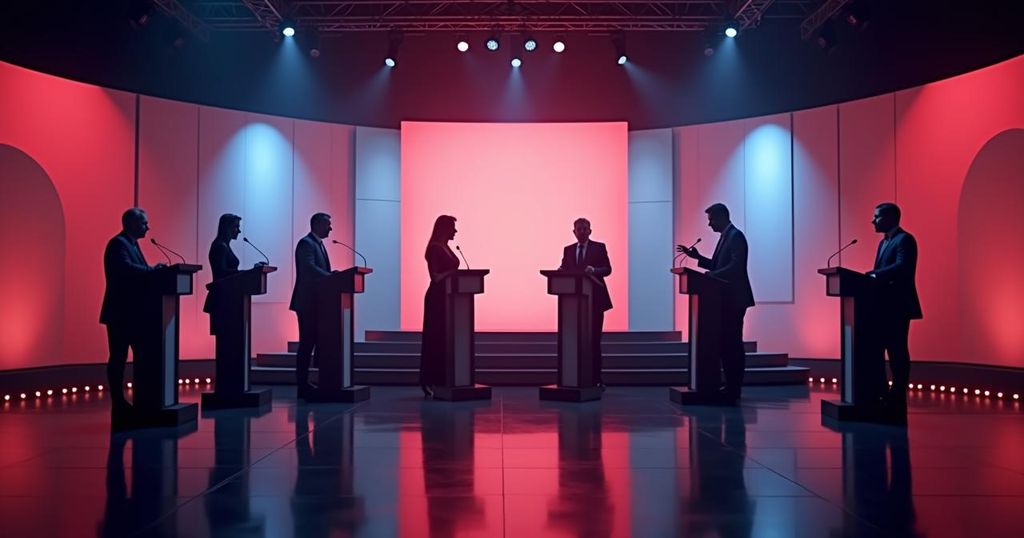Vance and Walz Clash Over Policies in 2024 Vice Presidential Debate

Senator JD Vance and Governor Tim Walz engaged in a pivotal vice presidential debate addressing critical issues such as foreign policy, climate change, and economic strategies in the lead-up to the 2024 election. The candidates focused on highlighting the weaknesses and policies of their opponents, with Vance defending Donald Trump’s past actions and Walz advocating for steady leadership. As the election nears, the importance of this debate is amplified by the competitive nature of current polling.
On Tuesday evening, Vice Presidential candidates Senator JD Vance (Republican from Ohio) and Governor Tim Walz (Democrat from Minnesota) engaged in their first and what is expected to be the only debate of the 2024 election season. The CBS-moderated debate lasted 90 minutes and centered on a range of pressing issues, with both candidates targeting the policies of their respective presidential nominees. The debate opened with a discussion on the escalating conflict in the Middle East, particularly following Iran’s recent missile strikes on Israel. Senator Vance praised former President Donald Trump’s approach to foreign policy, claiming, “Donald Trump actually delivered stability in the world and he did it by establishing effective deterrence. People were afraid of stepping out of line.” In contrast, Governor Walz emphasized the need for steady leadership, suggesting that the current President’s behavior was not suitable for the times, asserting, “What’s fundamental here is that steady leadership is going to matter. It’s clear, and the world saw it on that debate stage a few weeks ago…”. Attention then shifted to Hurricane Helene and the broader issue of climate change. Governor Walz noted the unprecedented devastation caused by the hurricane, criticizing Trump’s dismissal of climate concerns as a hoax. He stated, “…the thing roared onto the scene faster and stronger than anything we’ve seen.” Senator Vance, however, redirected the conversation to propose that, if Democrats truly regarded climate change as a serious issue, they would advocate for increased manufacturing and energy production within the United States. The debate also encompassed immigration, economic policy, health care, and the controversial results of the 2020 election. An unusual rule change allowed for continuous microphone use, facilitating an exchange where Walz pressed Vance about the legitimacy of the 2020 election results. Vance, notably, refrained from providing a direct response. This debate marks the final scheduled encounter between the candidates prior to the election on November 8, 2024, with polls indicating a competitive race in both national and battleground states.
The 2024 election cycle is significant as it determines the leadership structures of the United States at both the presidential and vice presidential levels. With the current geopolitical climate, particularly tensions in the Middle East and environmental challenges exacerbated by climate change, these debates provide critical insight into the policy positions of the candidates. The vice presidential debate is traditionally less scrutinized than the presidential debates; however, it offers voters an opportunity to gauge the qualifications and readiness of the candidates to assume higher office, should the need arise. The structure of debates, including microphone rules and direct exchanges, can influence audience perception and candidate performance, reflecting on their respective readiness to lead.
In summary, the vice presidential debate between Senator JD Vance and Governor Tim Walz highlighted their contrasting approaches to key issues such as foreign policy, climate change, economic strategy, and electoral integrity. With no further debates scheduled, both candidates now focus their efforts in the closing weeks leading up to the election, where public sentiment suggests a closely contested race. This debate underscores the importance of leadership and policy understanding as voters prepare to make their decisions in November.
Original Source: www.wcax.com







